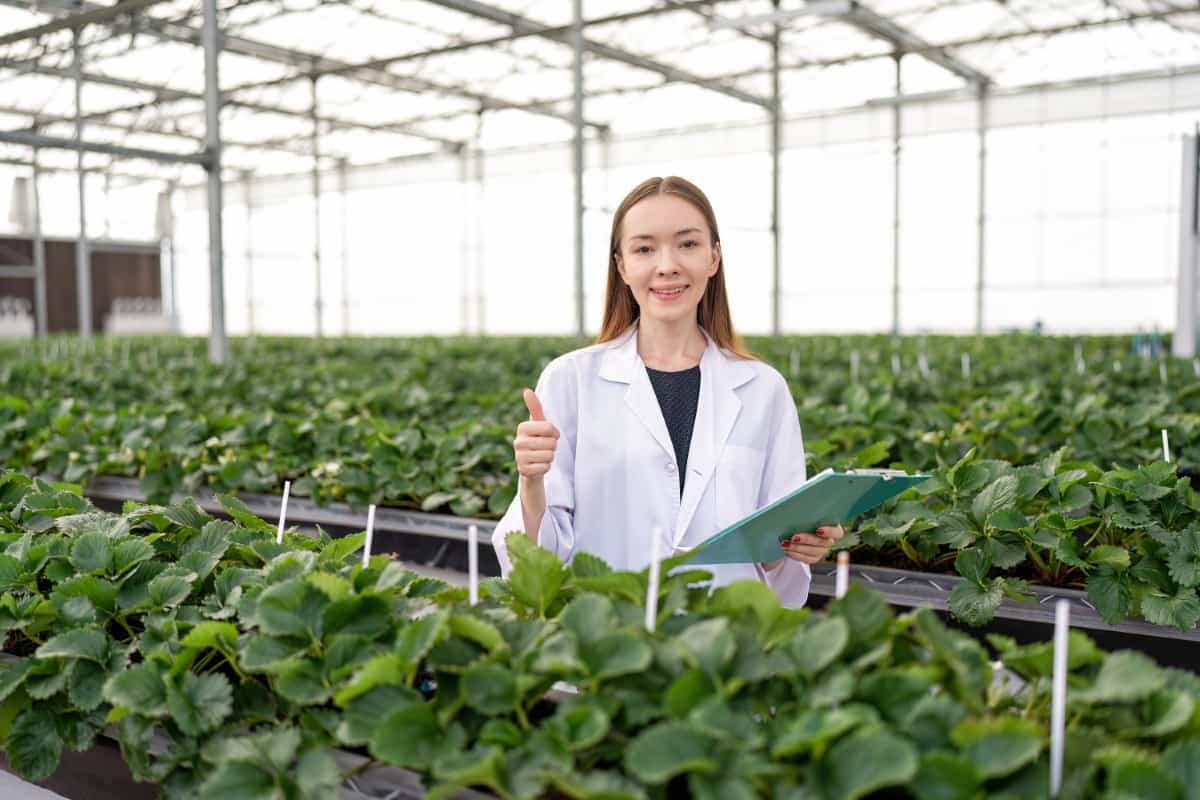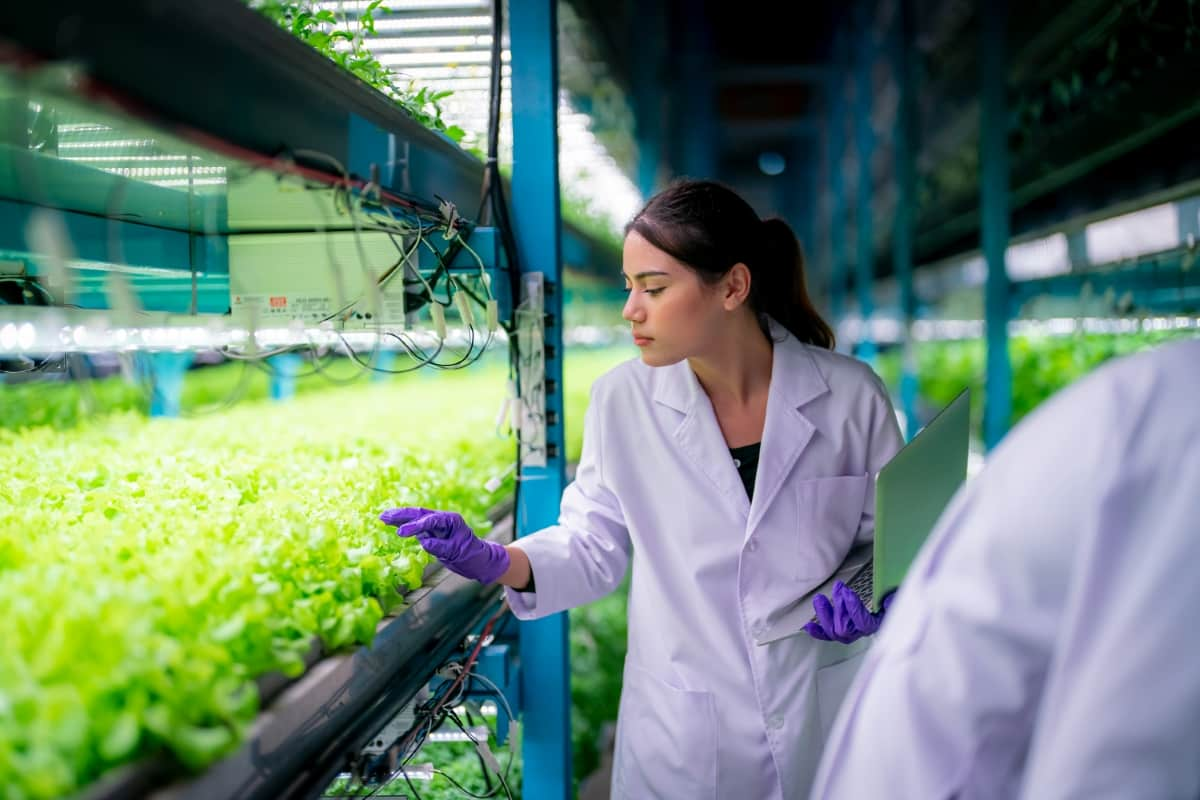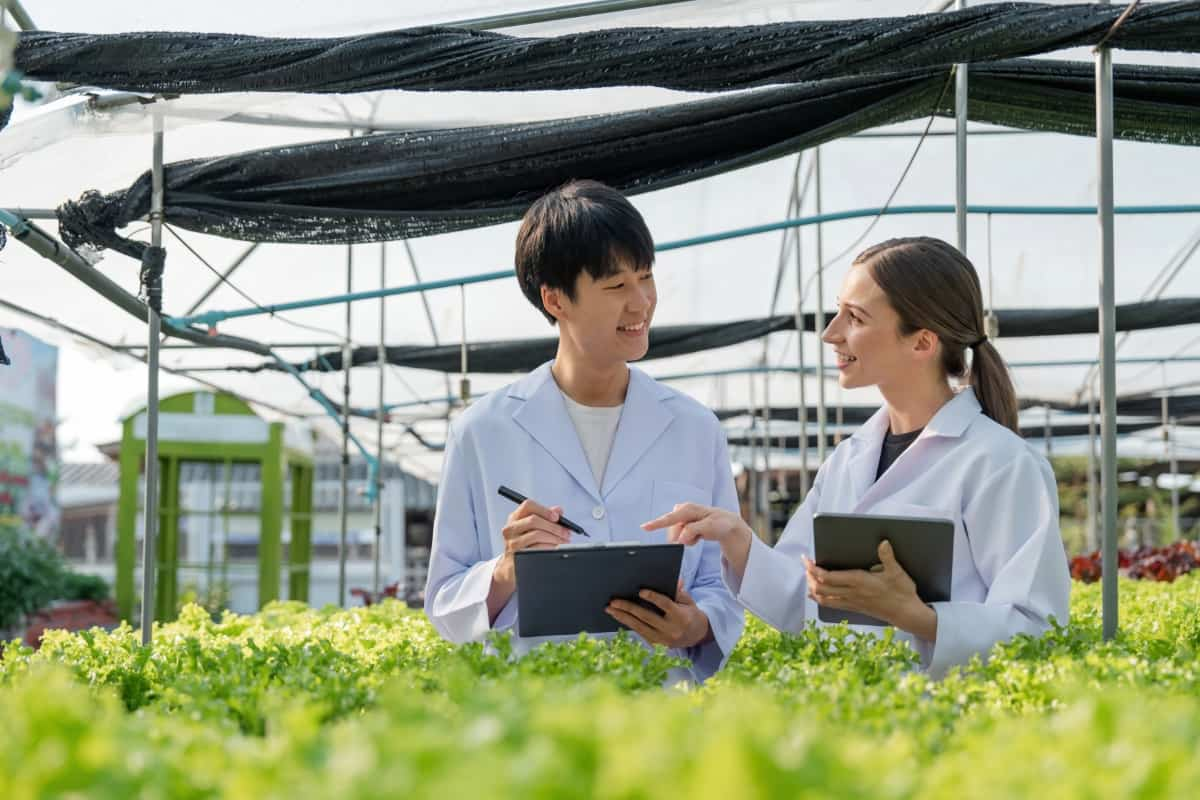Hydroponics organic certification is a topic that has been gaining increasing attention in sustainable agriculture. With the growing demand for organic produce, hydroponic farmers are looking to meet the organic standards set by certification bodies. The importance of hydroponics organic certification is adhering to strict organic practices but also assures consumers that their food is being produced in an environmentally friendly and sustainable manner.

Hydroponics Organic Certification
Understanding Hydroponics
Organic certification promotes environmental sustainability. Hydroponic systems already have inherent advantages regarding water conservation and reduced land usage compared to traditional farming methods. The most commonly used method in hydroponics is the Nutrient Film Technique (NFT). In NFT systems, a thin film of nutrient-rich water flows continuously over the plant roots. This allows for optimal nutrient absorption while also providing oxygen to the roots.
Another popular method is Deep Water Culture (DWC), where plant roots are submerged directly into aerated nutrient solution. This provides ample oxygen and nutrients to promote rapid growth and development. Additionally, Aeroponics involves suspending plant roots in the air and periodically spraying them with a fine mist of nutrient solution. These soilless farming methods offer numerous advantages, such as increased crop yields, faster growth rates, and reduced water consumption compared to traditional farming techniques.
The Importance of Organic Certification
Organic certification guarantees consumers that the produce they purchase has been grown using sustainable and environmentally friendly practices. Moreover, organic certification provides hydroponic farmers access to niche markets and premium prices. With increasing consumer demand for organically-grown products, having an official seal of approval can give hydroponic producers a competitive edge in the market.
In addition to consumer trust and marketability benefits, organic certification is crucial in safeguarding environmental sustainability. Hydroponics can become even more sustainable and eco-friendly when combined with organic practices such as composting or using natural pest control methods.
Meeting Organic Standards
The main concern is ensuring that all inputs and practices align with organic regulations originally designed for conventional soil agriculture. The absence of soil in hydroponics means alternative methods must be implemented to provide essential nutrients and prevent pest infestations. One challenge is finding suitable organic fertilizers and supplements compatible with hydroponic nutrient solutions. Hydroponic growers need to research and experiment with different organic inputs specifically formulated for use in hydroponics.
In case you missed it: How to Increase Yield in Hydroponics: Tips to Boost Hydroponic Crop Production

Integrated Pest Management (IPM) strategies using biological controls, such as beneficial insects or microbial inoculants, can help maintain a healthy balance without compromising certification requirements. Collaboration between hydroponic farmers and certifying agencies is vital to overcome these challenges. By working together, they can develop specific guidelines tailored to the unique needs of hydroponics while maintaining adherence to overall sustainability principles.
Key Components
Firstly, one of the main requirements is using organic seeds or seedlings. This means that the grown plants must come from non-GMO (genetically modified organism) sources and should not have been treated with synthetic pesticides or fertilizers. In addition to using organic seeds, hydroponic farms seeking certification must also follow strict guidelines when it comes to pest and disease management.
Organic hydroponics relies on using natural sources of nutrients rather than synthetic ones. This can include compost teas, fish emulsion, seaweed extracts, and other organic fertilizers approved for use in certified systems. Water quality is another crucial aspect of organic certification in hydroponics. Furthermore, maintaining detailed records is a fundamental requirement for achieving organic certification. These records should document all aspects of production, including seed sourcing, inputs used, pest control methods employed, harvest dates, etc.
Best Practices
Maintaining a healthy and pest-free hydroponic system is crucial for organic certification. The best practice is implementing preventive measures. This involves regularly inspecting plants for any signs of pests or diseases, ensuring proper ventilation to regulate humidity levels, and maintaining strict sanitation protocols within the growing area. Another effective strategy is promoting biodiversity. Introducing beneficial insects can help control harmful pests naturally. Crop rotation is also essential in preventing the buildup of pathogens and insects that specifically target certain plant species.
Nutrient Management
Nutrient management is a critical aspect of organic hydroponic systems, as it involves striking a delicate balance between sustainability and productivity. Organic growers rely on natural sources such as compost teas, seaweed extracts, and fish emulsions to provide the necessary nutrition for their crops.
Another important consideration is maintaining optimal nutrient levels throughout the growing cycle. Furthermore, recycling nutrient solutions is an eco-friendly practice that promotes sustainability within your hydroponic system. Reusing and replenishing your solutions instead of constantly disposing of them after each use minimizes waste while still nourishing your plants effectively.
Organic Fertilizers and Supplements
The best organic hydroponic fertilizer is fish emulsion. This nutrient-rich liquid is derived from decomposed fish remains and can provide plants with a wide range of essential nutrients. Another popular choice is seaweed extract, which contains trace elements that promote overall plant health.
In case you missed it: How to Grow Hydroponic Carrots: A Comprehensive Guide

Compost tea is another effective organic fertilizer for hydroponics. It involves steeping compost in water to create a nutrient-rich solution that can be added to the nutrient reservoir. These supplements often contain beneficial bacteria or fungi that help improve plant roots’ nutrient uptake.
Water Quality and Organic Certification
Organic standards require that water used in hydroponics meets certain criteria to maintain the organic label’s integrity. It’s essential to use clean, uncontaminated water for hydroponic systems. Another aspect is the pH level of the water. Organic certification in hydroponics requires maintaining proper pH levels for optimal nutrient absorption by plants.
Furthermore, organic certification emphasizes monitoring nutrient solution strength and composition regularly. Meeting organic standards for water quality in hydroponics involves carefully sourcing clean water, testing and adjusting pH levels appropriately, using approved organic fertilizers and supplements while avoiding synthetic additives or GMOs, and implementing effective filtration systems.
The Role of Organic Certification
With the growing demand for organic produce, hydroponic farmers need to meet organic standards and be certified. Organic certification plays a vital role in instilling trust and assurance in consumers. When consumers see the “certified organic” label on a hydroponically-grown product, they can have confidence that it has been produced using sustainable methods without synthetic pesticides or fertilizers. This certification assures them that the produce meets strict guidelines set by reputable certifying bodies.
Organic certification in hydroponics also ensures transparency in labeling and marketing claims, preventing misleading practices that may deceive consumers seeking genuinely organic products. It plays an essential role in building consumer confidence for hydroponic producers. By meeting strict guidelines set by certifying bodies, farmers can attract health-conscious individuals seeking transparently labeled products with reduced environmental impacts. This leads to increased sales opportunities within the growing market of organically-minded customers.
In case you missed it: Common Hydroponic Diseases: How to Control and Prevent with Organic and Natural Treatment

Conclusion
Hydroponics organic certification plays a significant role in building consumer confidence for hydroponic producers. It assures consumers who prioritize buying organically grown food. With the increasing demand for organic produce, hydroponic farms need to meet organic standards through certification.
- Feed Your Flock for Less: Top 10 Tips to Save on Chicken Feed
- Ultimate Guide to Ossabaw Island Hog: Breeding, Raising, Diet, and Care
- Hatching Answers: The Top 10 Reasons Your Chickens Aren’t Laying Eggs
- Eggs and Economics: Breaking Down the Cost of Raising Backyard Chickens
- Defend Your Greens: Proven Methods to Keep Iguanas Out of Your Garden
- Ultimate Guide to Cinnamon Queen Chicken: A Comprehensive Guide for Beginners
- Ultimate Guide to California Tan Chicken: Breeding, Raising, Diet, Egg-Production and Care
- Ultimate Guide to Marsh Daisy Chicken: Breeding, Raising, Diet, and Care
- 10 Types of Chicken Farming Businesses You Can Start for Profits